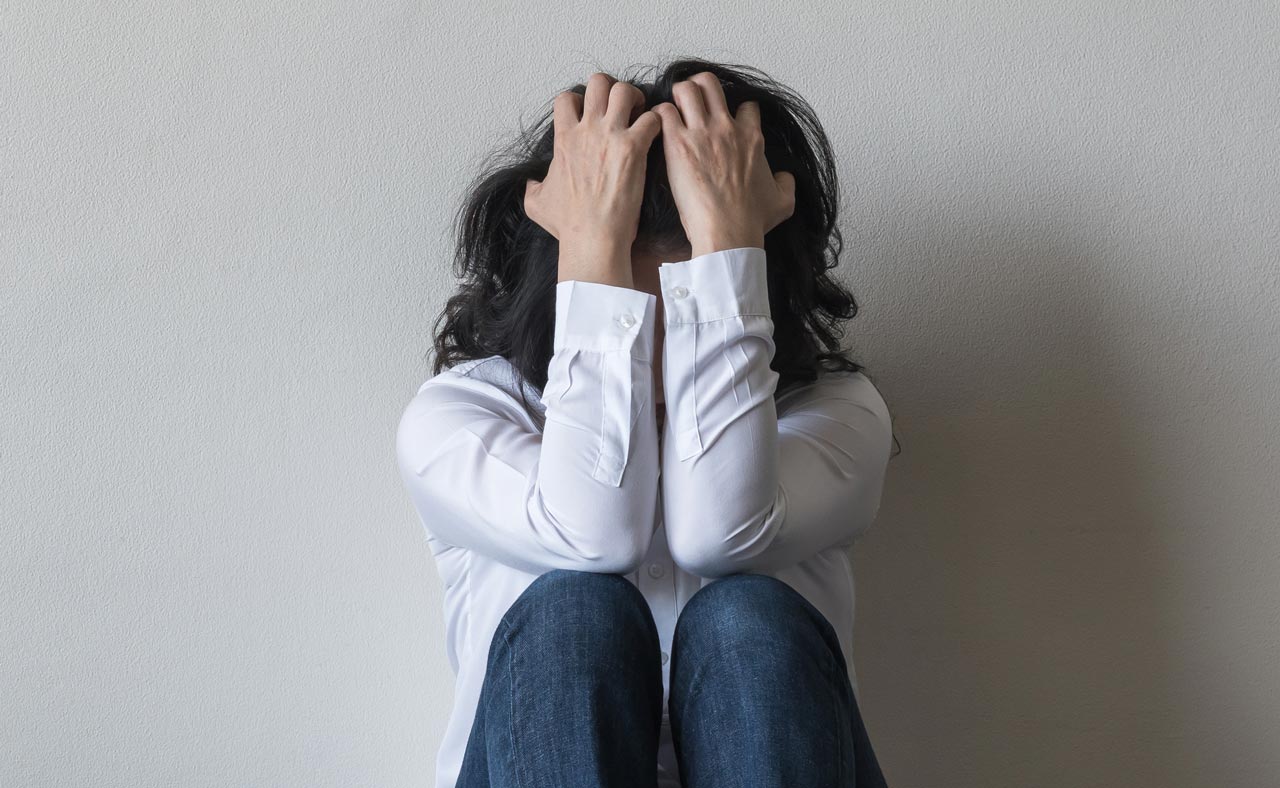 “Someone with panic disorder is always on alert, waiting for the next panic attack, feeling like it can happen at any moment,” says Meera Balasubramaniam, MD, Associate Medical Director of Penn Medicine Princeton House Behavioral Health in Hamilton. “As a result, a panic disorder has a direct impact on your quality of life.”
“Someone with panic disorder is always on alert, waiting for the next panic attack, feeling like it can happen at any moment,” says Meera Balasubramaniam, MD, Associate Medical Director of Penn Medicine Princeton House Behavioral Health in Hamilton. “As a result, a panic disorder has a direct impact on your quality of life.”
While they are not life-threatening, panic attacks — which may happen once or twice in your life or be a frequent occurrence — can be frightening and debilitating. They typically start suddenly, often without warning, and can happen at any time, even when you are sound asleep. What causes panic attacks is not really known, but stress, emotional trauma, and genetics can play a part.
Seeking Medical Attention is Important
“If you have a panic attack, it is important to seek immediate medical attention,” says Dr. Balasubramaniam. “To begin with, the symptoms of a panic attack can resemble other serious health problems, including heart attack. So, you want to rule out medical causes for your symptoms as a first step. The sooner you determine the cause of your symptoms, the sooner you can address them — whether it is a panic attack, a heart attack, or another serious health problem.”
If it turns out that you are having panic attacks, they can be hard to manage on your own and may get worse without treatment. Because of the uncertainties surrounding them, you may develop certain phobias, such as a fear of social situations, driving, or even leaving home. Panic disorders, and the anticipatory anxiety that can develop as a result of them, also can lead to other problems such as depression and substance use disorders. Seeking professional treatment for panic attacks is important if the condition is impacting your quality of life.
“The combination of medications and psychotherapy is useful in the treatment of panic attacks. Serotonergic antidepressants can help mitigate the anxiety associated with panic attacks and are frequently prescribed for this reason. Anti-anxiety medications such as benzodiazepines may also be prescribed for short-term use for managing severe symptoms,” says Dr. Balasubramaniam. “By including therapy as part of your treatment, you learn new ways of thinking and responding to the feelings that happen during or before a panic attack. You can come to a better understanding of what may be triggering your anxiety, and also learn techniques to manage your fears when they do arise.”

